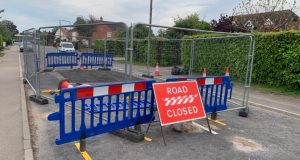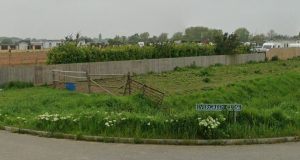The owner of Loaded nightclub says a late night levy (LNL) would be an unfair ‘tax’ on licensed premises which, like his, have already invested in CCTV and door staff.
Matt Clark believes a BID (Business Improvement District) scheme would be a fairer way to provide support.
Here Mr Clark, who is also chairman of Spalding Nighttime Economy Forum, tells The Voice why:
Whilst many businesses would be right in saying that our grossly overvalued business rates should contribute to services to support our business, we must have a realisation that it simply is not going to happen.
Therefore, I am supportive of the idea of town centre businesses contributing to a better town centre and community. Not least of all as the safer we make a night out, the more likely we are to attract customers from the district and beyond, thus stimulating our income, generating jobs, and offering a wider range of entertainment options.
Unfortunately, though, I do not believe that a LNL is the appropriate for this purpose.
South Holland, I suspect, will weigh up the financial arguments and find that it is cost prohibitive to do so.
There is also the moral argument of which businesses would be paying the ‘tax’ to provide additional support.
The majority of reputable venues open past midnight in the town already have invested considerably to protect their customers by way of CCTV and door security. Those same venues are the ones offering the safest places for people to partake in entertainment and consumption of alcohol.
How is it fair to financially penalise the venues offering the best protection for the public already, by making them responsible for a wider remit?
Should it not be the case that the levy is introduced to the businesses that are offering alcohol with no thought to its effects on the individual or town as a whole?
The most common solution to improving safety is using private security staff or rangers, who admittedly have less powers than the police, but can be instrumental in stopping issues from developing in the first place, and certainly aid the police in efficient deployment.
Examples of these can be seen in the majority of our local cities and even some towns already, often working hand in hand with the great charitable work gifted by Street Pastors.
Should Spalding have a BID scheme then all businesses within an area would be legally bound to contribute to a shared ‘pot’ that can be used for such purposes as the employment of SIA (Security Industry Authority) operatives.
Whilst the already well-operated, safe venues would be made to contribute, it would also be a fairer situation to receive income from the secondary services who also benefit from the retail of alcohol late at night.
Importantly, it leaves the distribution of the income (often increased by match funding) to the joint decision of businesses that pay into it.
The major difference between this and the LNL is that a BID scheme should act as an investment and not a tax/levy.
 The Voice of Spalding and South Holland
The Voice of Spalding and South Holland



